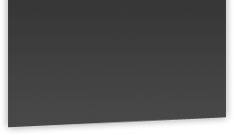
 Program
Program
RED, since its birth, has conceived education as a determinant factor in the acquisition of culture and human development and has assumed an obligation that leads to “explore, propose, boost and evaluate experiences that strengthen the public consciousness about education being a benefit which every member of our society has the right to have” (Rodriguez, 2002:8. Translation proposed by René Francisco Lora). As we have moved along the years, we have confirmed the idea that the school is legitimated as an educative agency by its particular relationship with knowledge and culture and, because of this relationship, the school is required to have the fundamental knowledge at everyone’s disposal for the practice of citizenship, to produce knowledge in local context, to safeguard the cultural particularities, and largely mitigate the exclusion that society generates of knowledge and information.
Knowledge has been the bond between the work of RED and schools through three dimensions of study and action, which take shape from the development of research projects; such dimensions are: Disciplinary, Institutional, and Everyday life. From the disciplinary dimension, there have been accomplishments both on the monodisciplinary aspect as in the interdisciplinary aspect. From the institutional dimension, an initiative that combines action and research in management and the principal’s role has been consolidated. Finally, from the Everyday life dimension, we have aimed at comprehending the complex phenomena of the relationships between individuals in the framework of school culture.
Although the school started to make sense in our reflections and in our action plans, it did not fully achieve a complex understanding of diverse situations. Then, we had to search for a comprehension of the school in context; a school that would be placed in a local reality, in a borderline stemming from the system, and in a perspective of the open world which is largely provided by the media, the communication and the information technologies. Thus, nowadays the RED program carries out research and innovation in three lines: The school world, management and education policies, and communication/education.






